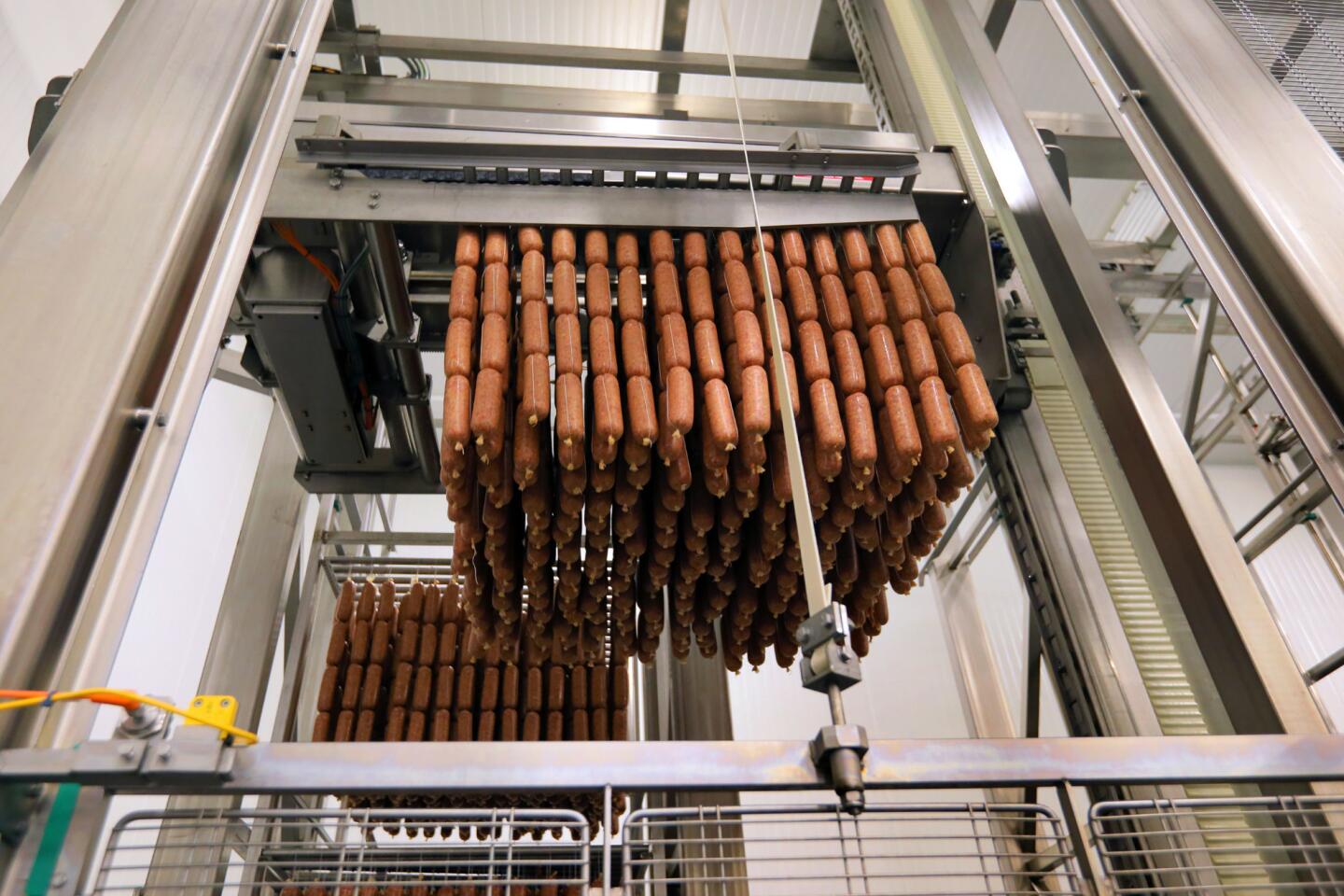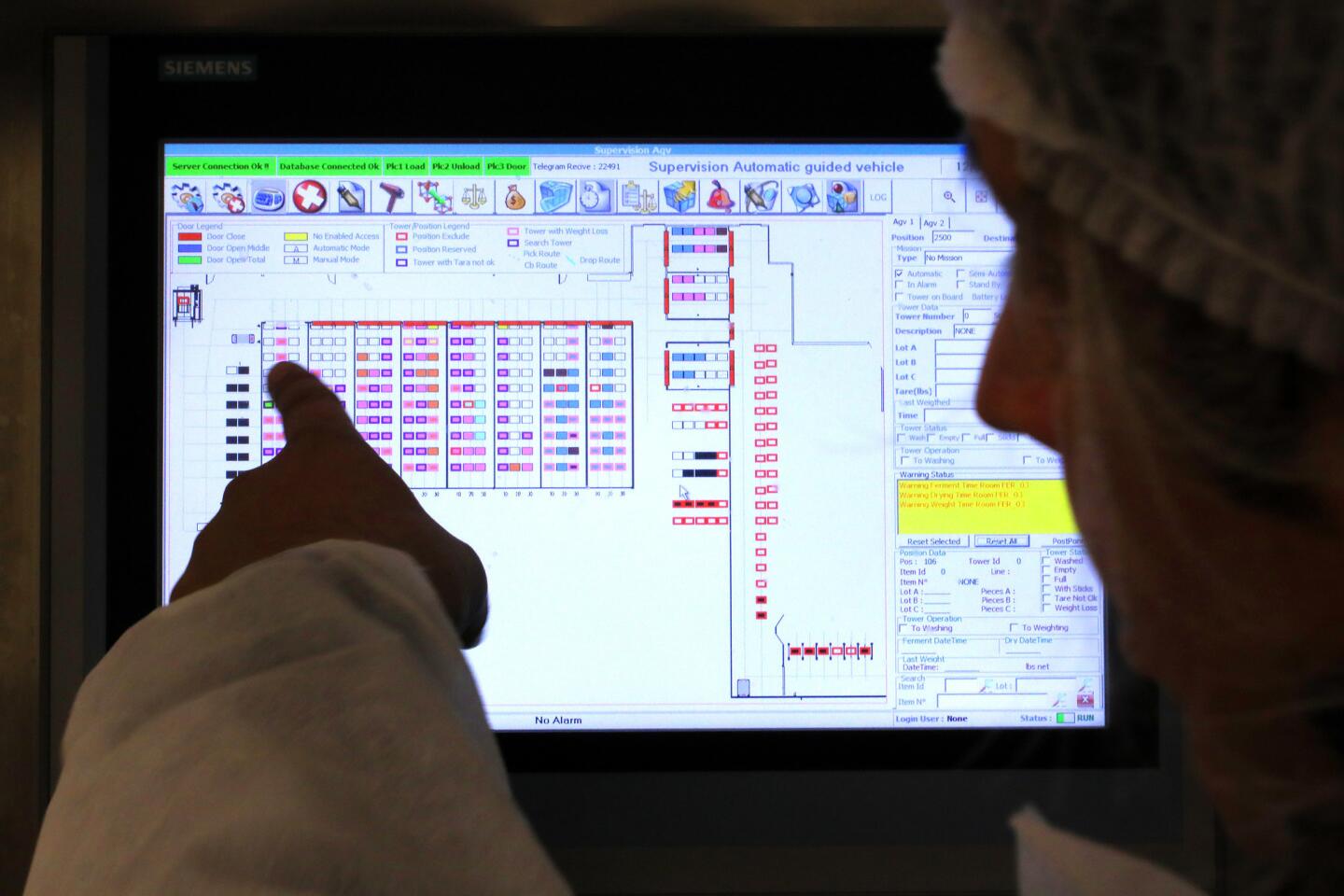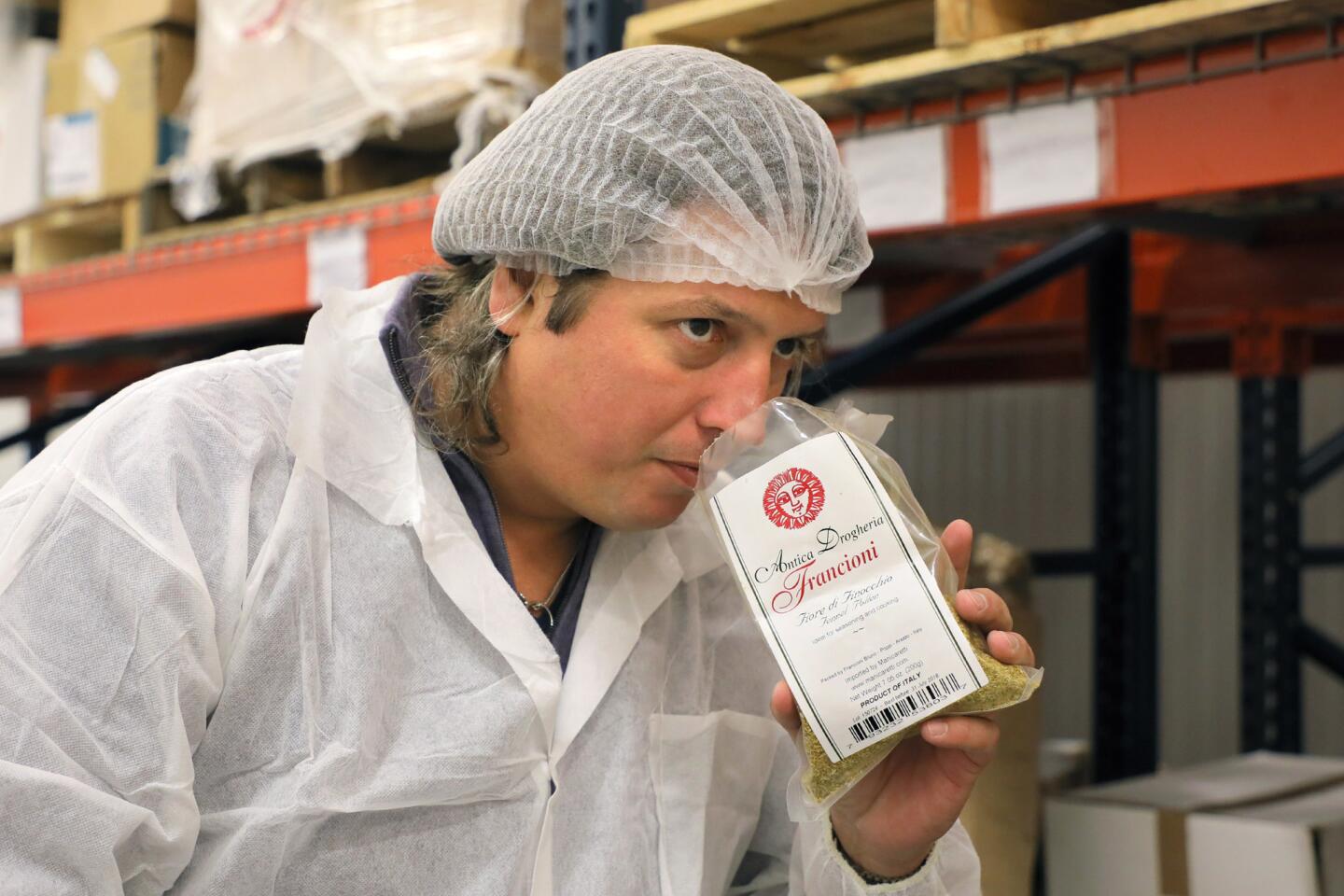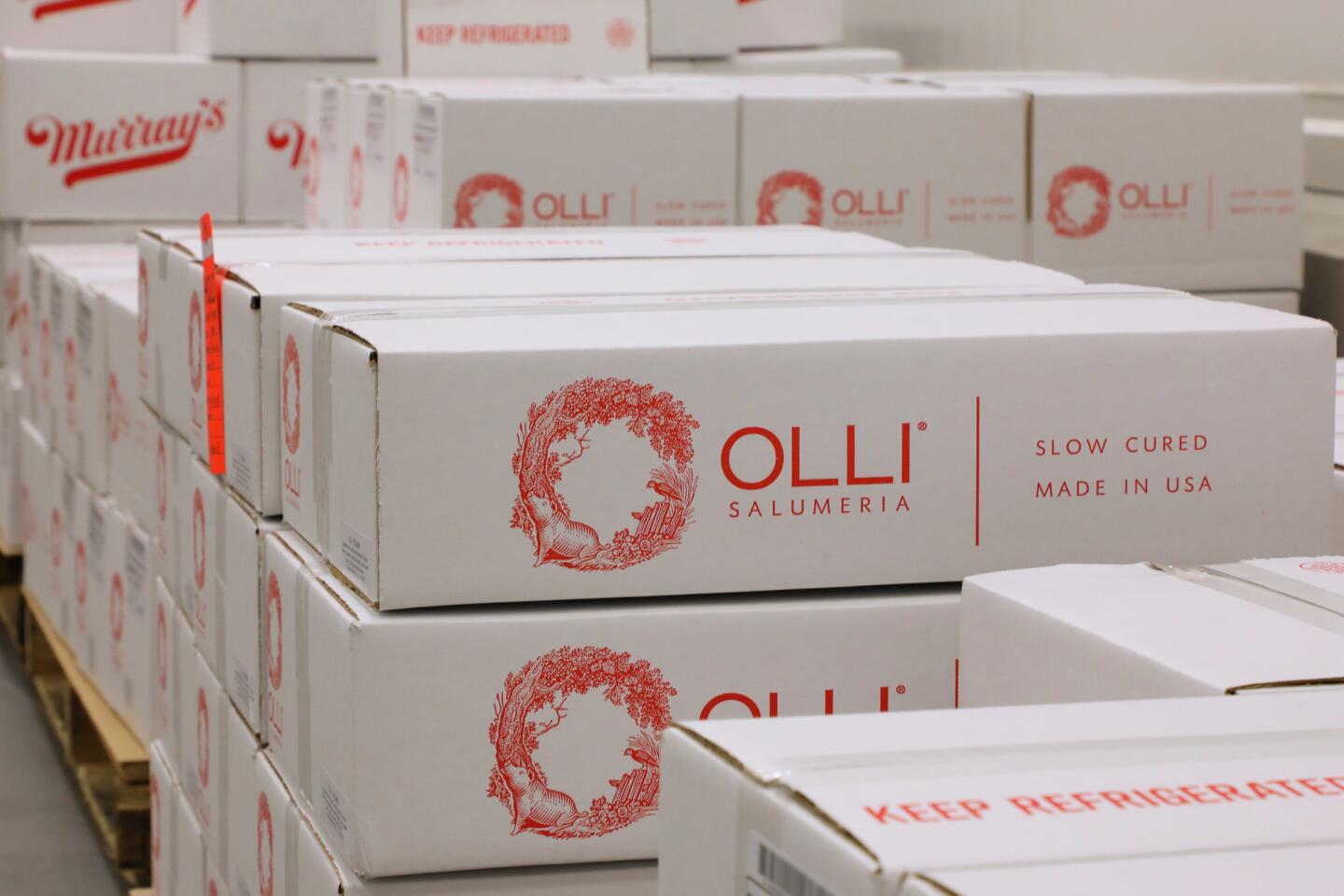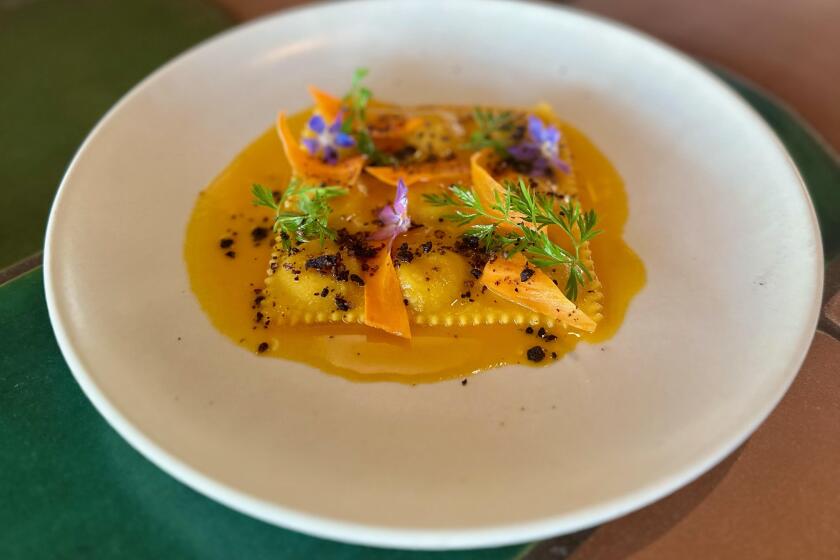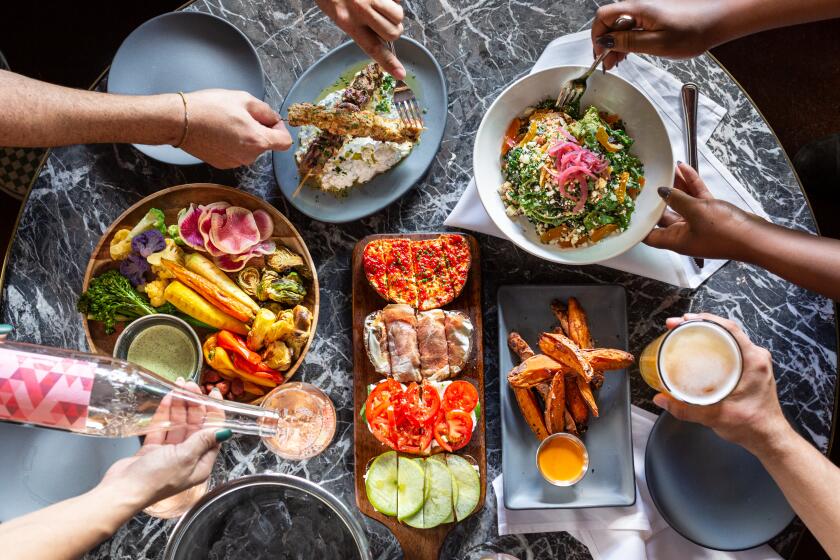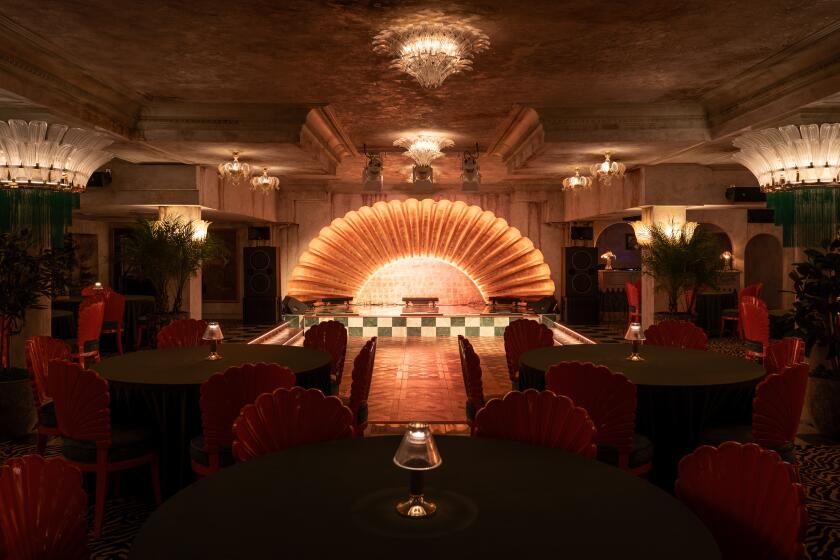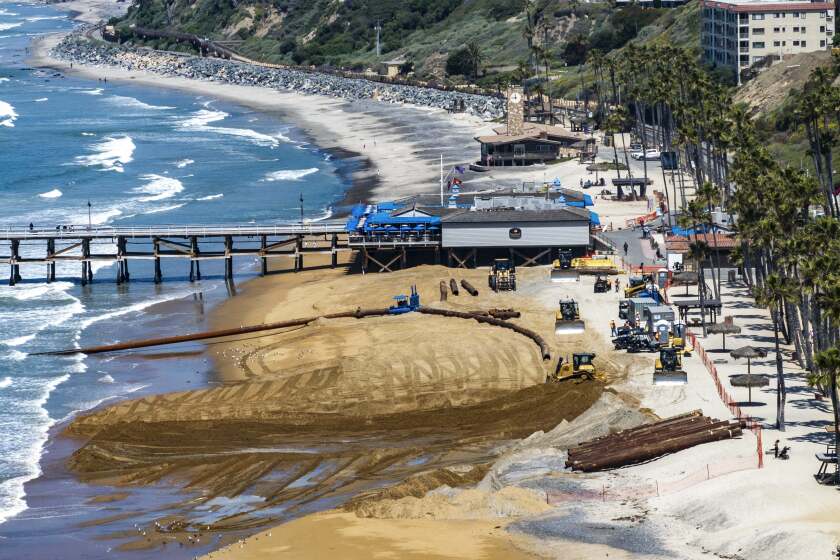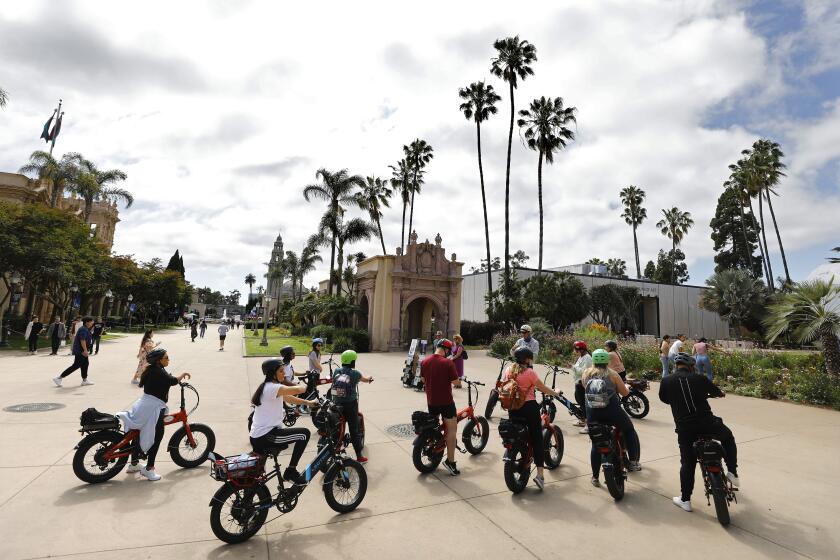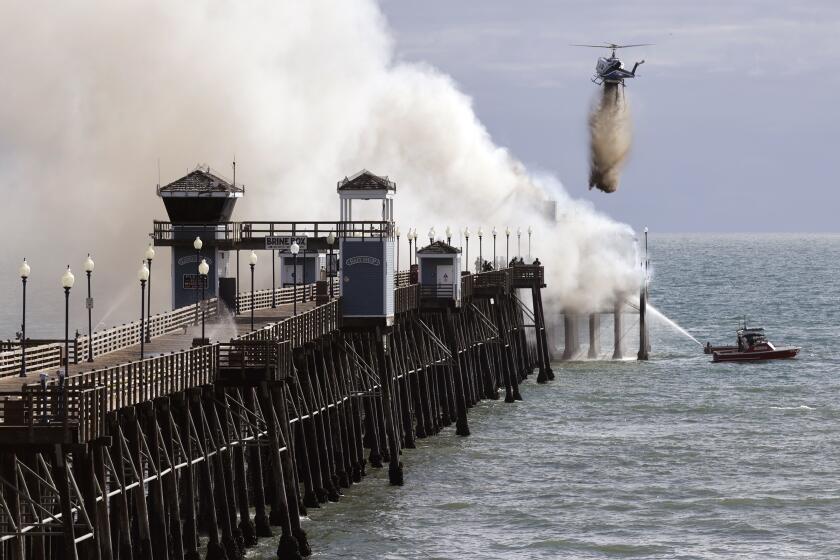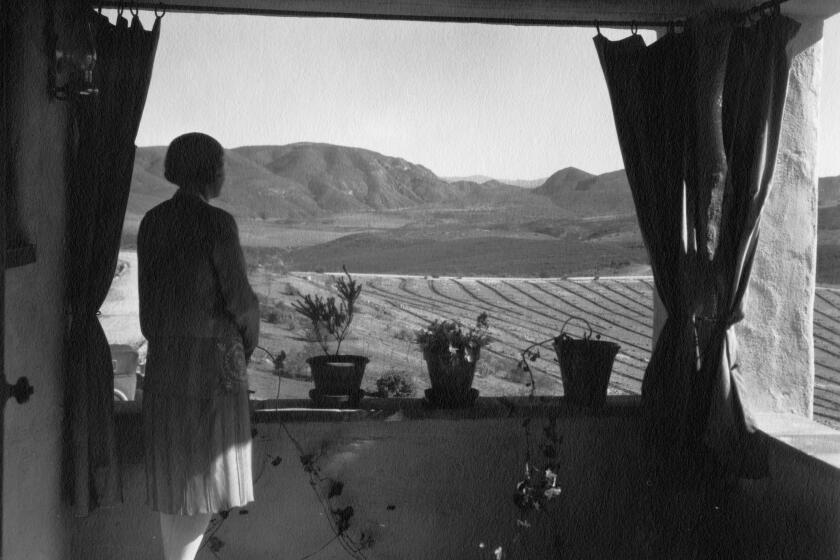Old world recipes with a modern touch
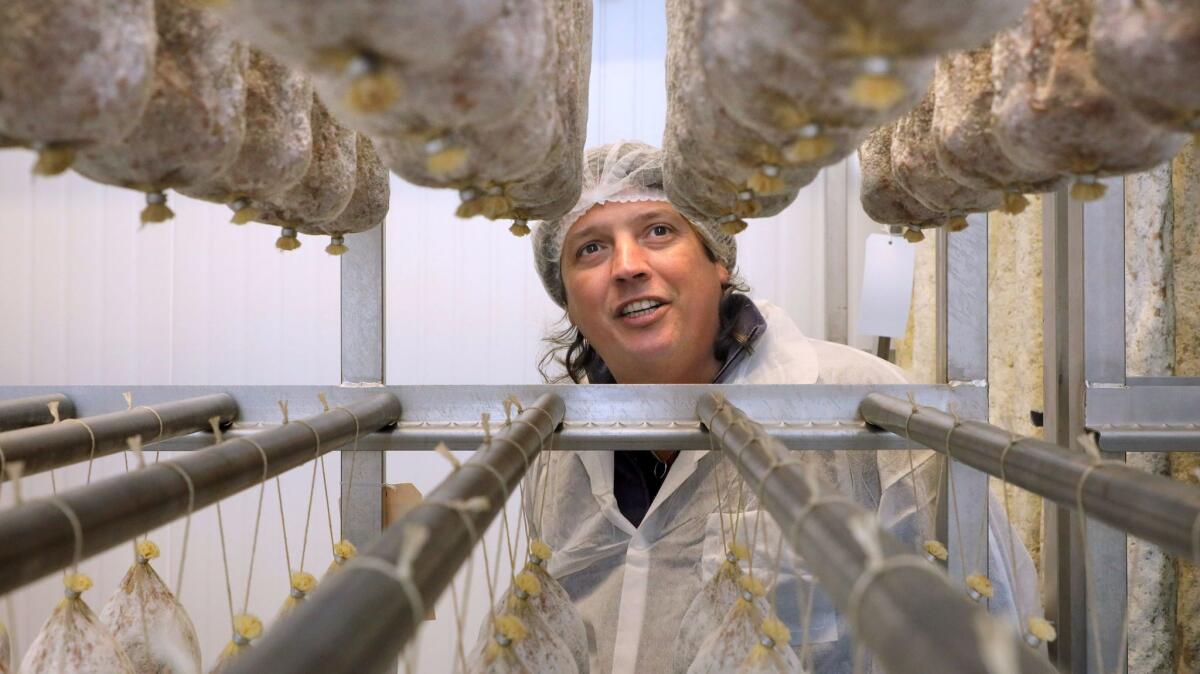
Back in 1850, Oliviero Colmignoli’s great-great-grandfather started making dry sausages at his home in Italy’s Umbria province. In those days, salami-making consisted of hand-stuffing some salted pork into a casing, hanging it from the rafters with a piece of string, then opening a window and hoping for the best.
Four generations later, Colmignoli — whose nickname is “Olli” — is still following the family’s Old World tradition of salami-making, but now the Encinitas resident is using the latest technology at a huge processing plant in Oceanside. Every week, Olli Salumeria turns out 30,000 pounds of high-end artisan salami in a factory that uses robots to move, weigh and measure the moisture in each of the slowly curing links, which hang by the tens of thousands from steel racks in 21-foot-tall, climate-controlled rooms.
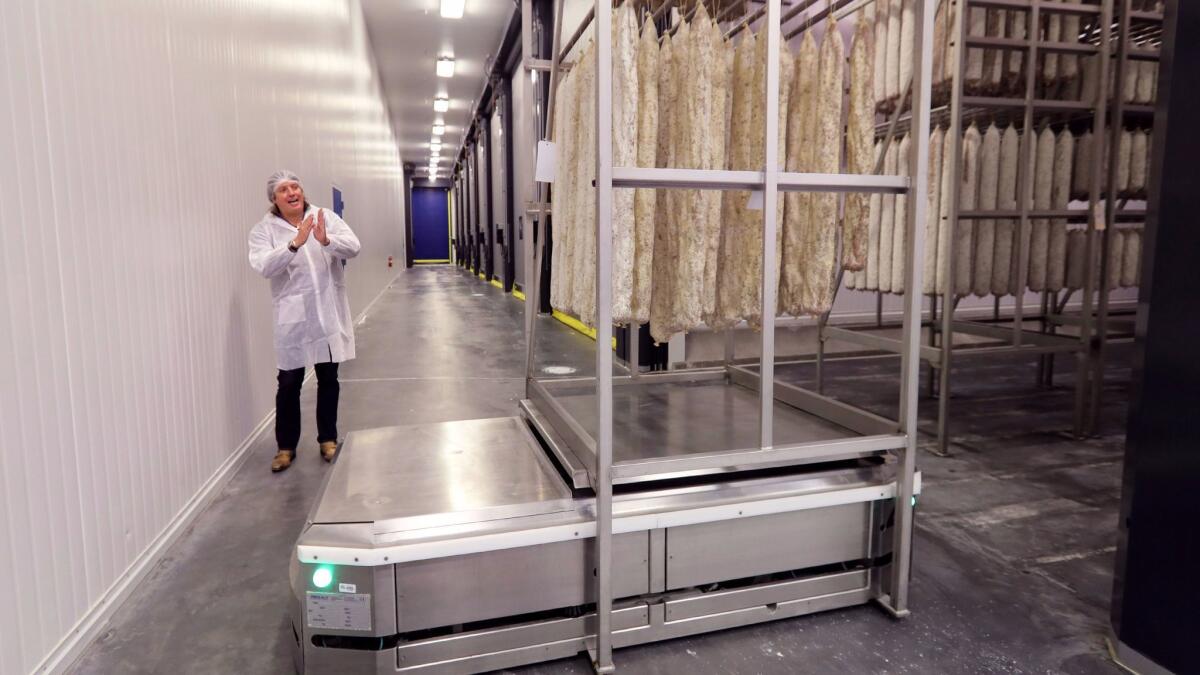
Colmignoli, 38, can use his cellphone to track of the progress of every single salami in the 80,000-square-foot factory, but he insists that while the process has changed, some things never do. All the fresh spices are still hand-measured and each string of sausages is hand-tested for the perfect firmness, a quality unique to Olli sausage that he said can’t be done by machine.
“The family has always pursued technology, which allows us to deliver quality at a price that’s accessible, but the salami-making process has never changed from its traditional roots,” he said.
The Oceanside Olli factory opened last year and employs 50 workers, who turn out some 7,000 cases of meat products each week for customers that include Costco, Whole Foods, Gelson’s, Bristol Farms, Jimbo’s and Frazier Farms. The company’s specialty is high-end, artisan salami that’s made with all-natural, antibiotic-free pork from small farms in Iowa and Canada that’s processed without nitrates. The five-inch salamis, which come in nine varieties, retail for $11 to $12.
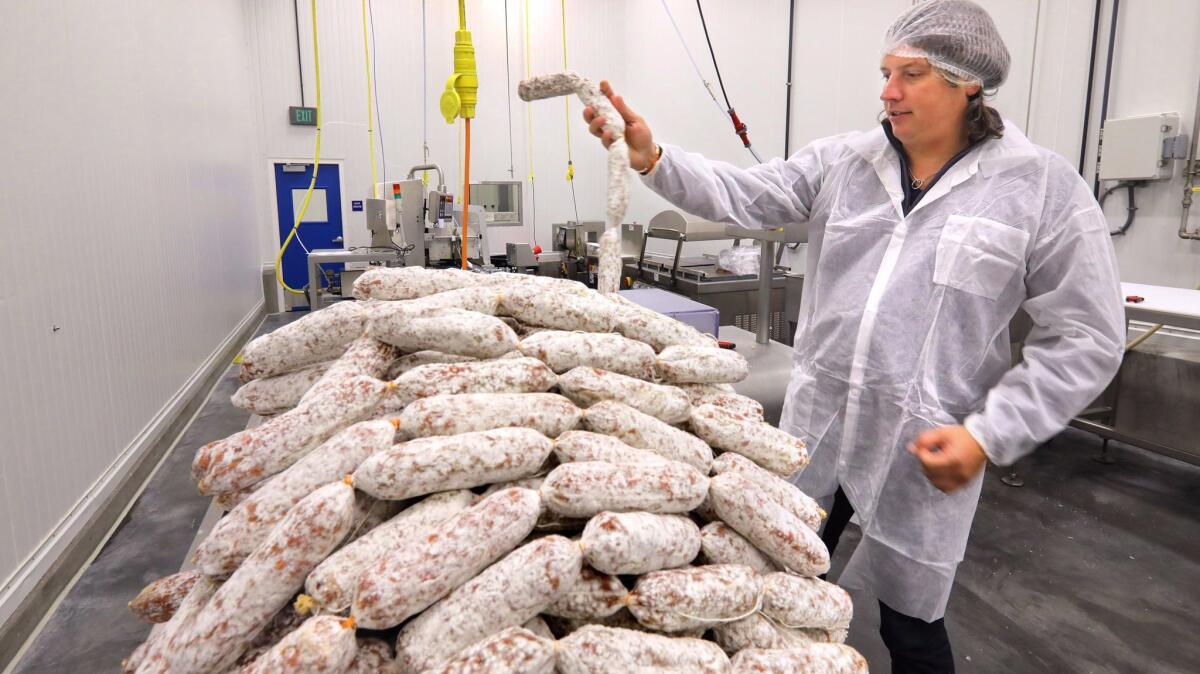
So how did an Italian sausage-maker end up in Oceanside? That’s a story that began 166 years ago with Innocenzo Fiorucci, the family’s meat-processing pioneer. Colmignoli said his great-great-grandfather paid the bills by selling salted meats in the winters and cobbling shoes each summer. Over the next 90 years, the Fiorucci family became well-known for their Norcia-style sausages (Norcia is a town in Umbria), which Innocenzo’s son, Cesare, started producing and selling in Rome after World War II.
Cesare’s son, Ferruccio, didn’t have any sons of his own, so the family’s salami tradition was passed on to his son-in-law, Claudio Colmignoli, who moved to Virginia in 1986 with his wife and 9-year-old son Olli. They opened a U.S. manufacturing plant for Fiorucci Foods in Richmond, but four years later, Olli’s parents divorced and he and his mother moved back to Rome. After high school, he moved to London to study photography, but after a few years working in that field, the salami siren song called him back into the family fold.
In 2004, Olli Colmignoli moved his family to Virginia to work in the Fioriucci Foods plant in Richmond. A few years later — after his family sold their assets to a private equity firm — Olli Salumeria was born. Colmignoli said he and an investor friend were discussing American versus Italian prosciutto (dry-cured ham). He felt that Italian prosciutto was superior because the pigs in Italy are naturally raised on small family farms. Together, Colmignoli and his now-former partner decided to reproduce the conditions in Italy to create an higher-end American product.
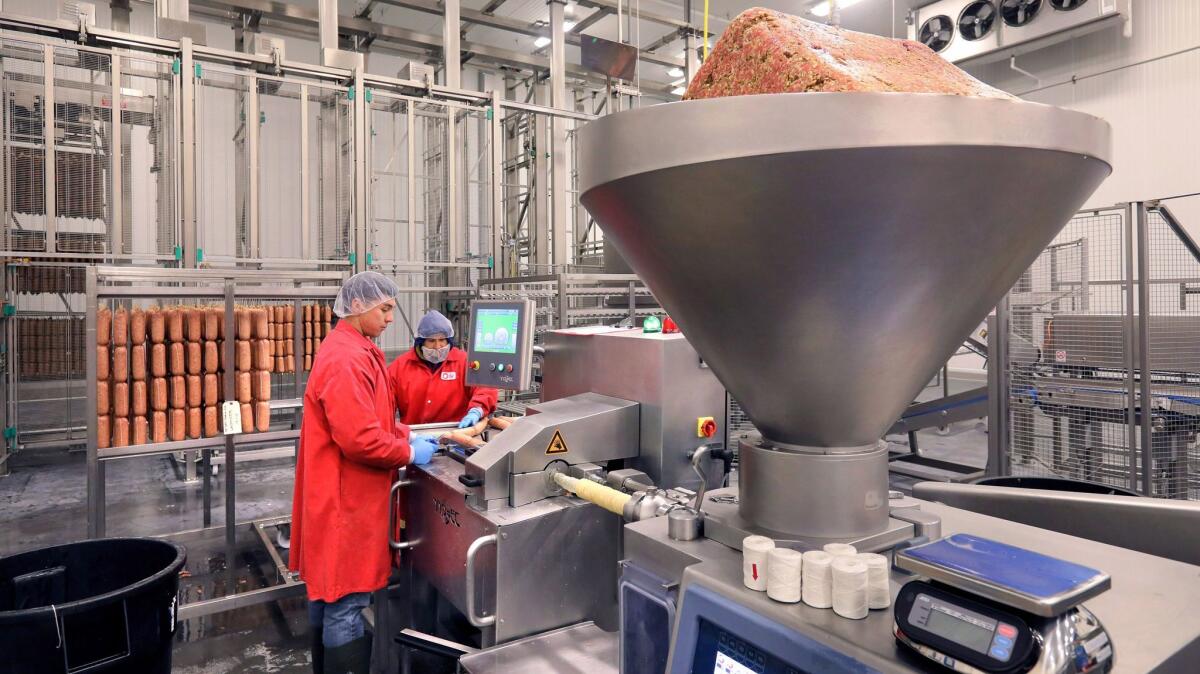
Working from a small plant in Virginia, Olli’s first prosciutto was unveiled in 2010 and its salami debuted in 2011. The fledgling company was boosted by great press in newspapers like the New York Times and Wall Street Journal, whose reporters were charmed by its Old World aspirations. Oprah Winfrey recommended Olli products in a Christmas “best” list and then Whole Foods came calling. The high-end supermarket chain was looking for U.S. companies to produce private-label charcuterie items under its Gusto brand, and the chain helped connect Colmignoli with humane pork suppliers in Canada and Iowa to ensure a consistent supply.
Eventually, Olli Salumeria focused all its energies on salami and its Virginia plant maxed out. When he decided to build a much larger plant in 2014, he looked to the West Coast for expansion. California shoppers are willing to pay for more quality foods, and California’s Mediterranean climate appealed to the Rome-bred Colmignoli, his South African wife, Leanna, and their two daughters, now 11 and 16. He picked San Diego because his sister, Giulia, and her husband, Christopher Antinucci, had already settled here to open their fast-growing Rome-style pizza chain, Napizza.
The enormous Oceanside factory was built for growth, with enough room to process 400,000 pounds of meat each week, nearly seven times its current production. He believes that will take about 10 years to reach. Olli salami is manufactured to American tastes. It’s smokier, less sweet and much harder than Italian salami. That hardness is achieved through drying, which can take five weeks to five months, depending on the variety. During the drying process, the salami loses 50 percent of its weight, so it takes 60,000 pounds of pork to make 30,000 pounds of salami.
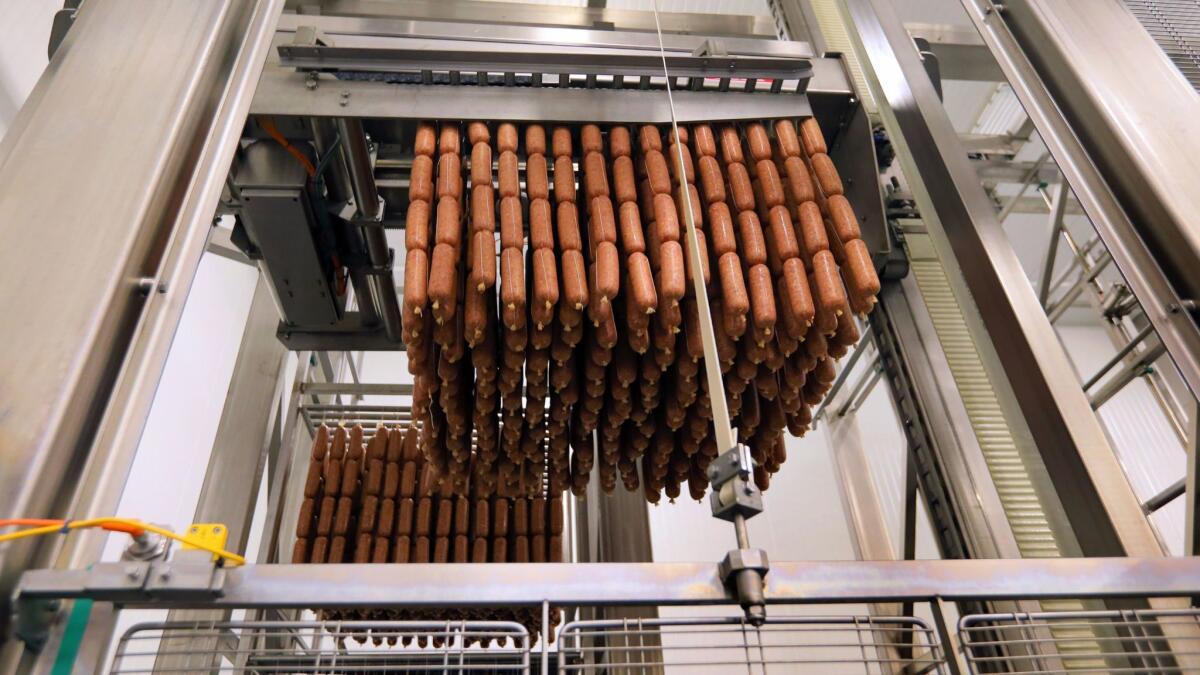
The pre-cut raw pork arrives daily and is poured into a truck-sized grinder in a chilled room. Employees mix the ground pork with fresh spices (oregano, cumin, smoked paprika, anise, fennel seed pollen, mace and fresh garlic cloves), feed it by machine into mesh casings and then spray it with a penicillin-like mold that starts the fermenting process. After a week in cold storage, the sausages are moved by robotic carts into slightly warmer drying rooms, where streams of moisture-free forced air cycle up and down through the racks.
Once the sausages reach the perfect weight and level of dehydration, they’re washed, dried and packaged. Among the varieties Olli produces under its own label and the Gusto and Murray’s private labels are Toscana, made with Italian fennel pollen; spicy Calabrese, with cayenne pepper and paprika; Chorizo, made with pimenton de la vera (Spanish smoked paprika); and Napoli, which is smoked over apple wood. There are varieties made with Italian summer black truffles and boar’s meat, a new pepperoni line, and a new test batch now in the curing stages made with barley and smoked porter beer from Carlsbad’s Guadalupe Brewery.
When asked how his great-grandfather Cesare — who built the family’s first major salami factory outside Rome in the 1960s — would feel about the modernized Olli factory, Colmignoli smiles with pride.
“He was the first to use technology, and I think he’d love it,” he said. “The technology has definitely come forward, but without changing the process.”
Food & Wine Videos
pam.kragen@sduniontribune.com
Get North County news in your inbox
Top stories from the San Diego North County every Monday, Wednesday, and Friday.
You may occasionally receive promotional content from the San Diego Union-Tribune.


